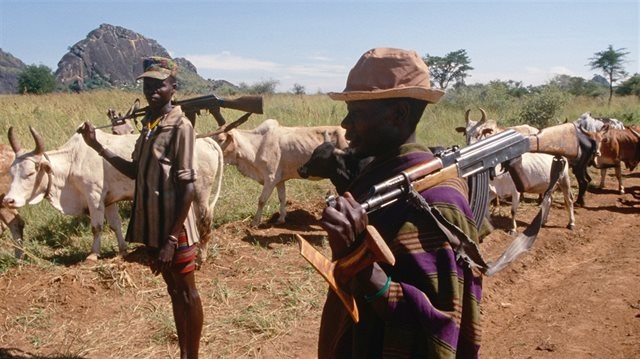
Kampala, Uganda | THE INDEPENDENT | Leaders from Karamoja have called for an inclusive disarmament process where the UPDF should involve elected and religious leaders, civil society and community leaders in order to minimize cases of human rights abuses.
During the first disarmament process that ushered in a window of peace for at least 10 years, there were reports that the UPDF soldiers used inhumane methods including torture that is illegal. Residents reported having been tortured by soldiers in order to disclose where they kept the illegal guns. Some have allegedly suffered permanent disabilities and deformities while others reportedly died due to the alleged torture.
Speaking in an interview, key local leaders noted that the UPDF should employ a peaceful approach before and during the disarmament process, ensuring that human rights are respected. Paul Lokol, the LC 5 chairperson of Nabilatuk district where raids are currently increasing says that the disarmament process should involve the local leaders, religious leaders, civil society and women.
Lokol suggested that the disarmament should first start as voluntary after speaking to the communities to be part of the disarmament process to ensure that human rights are upheld.
He also said the UPDF should avoid destruction of life and property, torture and other violent means of obtaining information.
Lote Joseph Komol, the LC 5 chairperson of Kotido district also wants local leaders and the community to be highly involved. He says people should first be encouraged to appreciate and participate in the process. He said he has already started talking to his citizens to support the disarmament.
The Moroto district chairperson David Koriang says there is need to use intelligence based approach in disarming the warriors. He said for this to succeed, there should be cooperation between the security agencies and the community.
The Karamoja Parliamentary Group chairperson Remigio Acia stresses the need for government to strengthen its intelligence in order to register success. He notes that the process should see intelligence personnel well facilitated to do their work.
Recently, the UPDF third division commander, Joseph Balikudembe announced a 3-month disarmament period that begins this month with voluntary disarmament.
Patricia Nangiro, a human rights governance expert notes that the incidents of insecurity in Karamoja were escalated because government did less to resettle the warriors after the disarmament process.
She notes that government should have invested in human development rather than merely peace keeping.
*****
URN
 The Independent Uganda: You get the Truth we Pay the Price
The Independent Uganda: You get the Truth we Pay the Price





